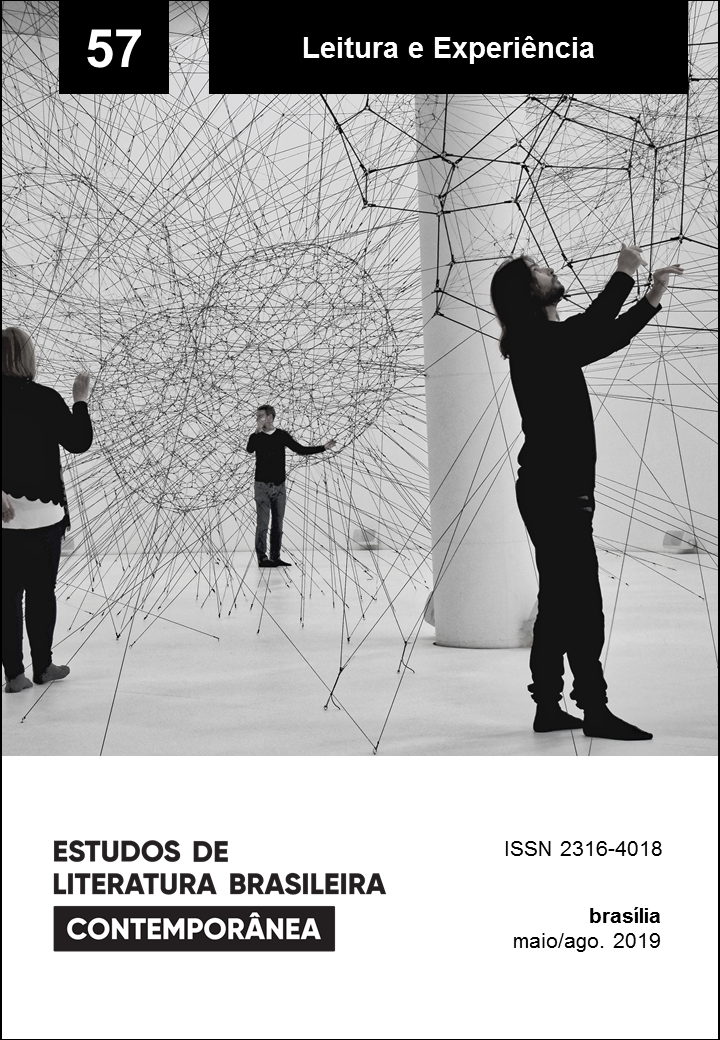A stranger in the classroom: interculturality, literary reading and teaching
DOI:
https://doi.org/10.1590/2316-4018576Keywords:
literary literacy, intercultural translation, Wisława SzymborskaAbstract
Considering that literature teaching in our country has focused on authors and national works, giving little relevance to intercultural dialogue, this paper reflects on the relationships between literary literacy, interculturality and teaching. Therefore, we present an approach to the classroom that would include, through translation, texts written by foreign authors, specifically the Polish poet Wislawa Szymborska’s “Museum”, alongside the traditional methods of reading promotion already implemented in schools. The reflections presented have basis in studies on literacy from Street (2014) and, especially, in studies on literary literacy from the didactic-methodological guidelines of Cosson (2006) and Colomer (2007). Together with these considerations, we identify in the considerations of Candido (2004) the importance of literature in the formation of subjects, suggesting that it is a human right that should not be denied to anyone. Finally, we conclude by emphasizing the importance of an intercultural approach in literature classes in order to broaden the cultural horizon of our students through contact with texts belonging to other cultures.
References
ALVES, José Hélder Pinheiro (2014). Discutindo alternativas na formação de leitores. In: ALVES, José Hélder Pinheiro (Org.). Memórias da Borborema 4: discutindo a literatura e o seu ensino. Campina Grande: Abralic. p. 7-18.
ALVES, José Hélder Pinheiro (2016). Estratégias para o ensino de poesia. In: FERNANDES, Maria Lúcia Outeiro; ANDRADE, Paulo; PERRONE, Charles Andrew (Orgs). Poesia na era da internacionalização dos saberes: circulação, tradução, ensino e crítica no contexto contemporâneo. São Paulo: Acadêmica. p. 207-227.
ANDRADE, Carlos Drummond de (2015). Nova reunião: 23 livros de poesia. São Paulo: Companhia das Letras.
BAGNO, Marcos (2014). Prefácio. In: STREET, Brian. Letramentos sociais: abordagens críticas do letramento no desenvolvimento, na etnografia e na educação. Tradução de Marcos Bagno. São Paulo: Parábola Editorial. p. 13-15.
BARTHES, Roland (2007). Aula: aula inaugural da cadeira de semiologia literária no Colégio de França, pronunciada no dia 7 de janeiro de 1977. Tradução de Leyla Perrone-Moisés. São Paulo: Cultrix.
BORGES, Ana Isabel; NERCOLINI, Marildo José (2002). A (im)possibilidade da tradução cultural. In: CONGRESSO BRASILEIRO DE HISPANISTAS, 2., 8 a 11 out. 2002, Universidade de São Paulo. Proceedings. São Paulo: Associação Brasileira de Hispanistas. Disponível em: < https://bit.ly/2UHcuB2 >. Acesso em 16 abr. 2017.
BUZEN, Clecio (2014). Apresentação. In: STREET, Brian. Letramentos sociais: abordagens críticas do letramento no desenvolvimento, na etnografia e na educação. Tradução de Marcos Bagno. São Paulo: Parábola Editorial. p. 7-11.
CANDAU, Vera Maria (2012). Escola, didática e interculturalidade: desafios atuais. In: CANDAU, Vera Maria (Org.). Didática crítica intercultural: aproximações. Rio de Janeiro, Vozes. p. 107-138.
CANDIDO, Antonio (2004). O direito à literatura. In: CANDIDO, Antonio. Vários escritos. São Paulo: Duas Cidades.
COLOMER, Teresa (2007). Andar entre livros: a leitura literária na escola. Tradução de Laura Sandroni. São Paulo: Global.
COSSON, Rildo (2006). Letramento literário: teoria e prática. São Paulo: Contexto.
DIONÃSIO, Maria de Lourdes (2007). Educação e os estudos atuais sobre letramento. Perspectiva, Florianópolis, v. 25, n. 1, p. 209-224, jan./jun.
ECO, Umberto (2003). Sobre a literatura. Tradução de Eliana Aguiar. Rio de Janeiro: Rocco.
JUSTINO, Luciano Barbosa (2014). Literatura de multidão e intermidialidade: ensaios sobre ler e escrever o presente. Campina Grande: Eduepb.
LAJOLO, Marisa (1999). Do mundo da escrita para a leitura do mundo. São Paulo: Ática.
LEIBRANDT, Isabella (2006). El aprendizaje intercultural a través de la literatura. Revista Espéculo, n. 32, mar/jun. Disponível em: http://www.ucm.es/info/especulo/numero32/aprendiz.html. Acesso em: 14 fev. 2019.
OSAKABE, Haquira. Poesia e indiferença (2005). In: PAIVA, Aparecida et al. (Orgs.). Leituras literárias: discursos transitivos. Belo Horizonte: Autêntica.
OUTINOFF, Michaël (2011). Tradução: história, teorias e métodos. Tradução de Marcos Marcionillo. São Paulo: Parábola.
PAVIS, Patrice (2015). O teatro no cruzamento das culturas. São Paulo: Perspectiva.
PUGLIESE, Adriana; MARANDINO, Martha (2018). Museu como espaço legítimo na formação docente em ciências naturais. In: COSTA, Váldina Gonçalves; BARBOSA, Marinalva Vieira (Orgs.). Formação de professores e contextos de trabalho: diferentes olhares. São Paulo: Mercado de Letras. p. 119-134.
ROJO, Roxane (2009). Letramentos múltiplos, escola e inclusão social. São Paulo: Parábola.
SANTOS, José Luiz (1986). O que é cultura. São Paulo: Brasiliense.
STREET, Brian (2014). Letramentos sociais: abordagens críticas do letramento no desenvolvimento, na etnografia e na educação. Tradução de Marcos Bagno. São Paulo: Parábola.
SZYMBORSKA, Wislawa (2011). Poemas. Seleção, tradução e prefácio de Regina Przybycien. São Paulo: Companhia das Letras.
XIDIEH, Oswaldo Elias (1976). Cultura popular. In: XIDIEH, Oswaldo Elias et al. Feira Nacional de cultura popular. São Paulo: SESC. p. 01-06.
ZUMTHOR, Paul (1997). Introdução à poesia oral. Tradução de Jerusa P. Ferreira. São Paulo: Hucitec.
Downloads
Published
Issue
Section
License
Authors who publish in this journal agree to the following terms:
a) The authors maintain the copyright and grant the journal the right of first publication, the work being simultaneously licensed under the Creative Commons Attribution License-Non Commercial 4.0 which allows the sharing of the work with acknowledgment of the authorship of the work and publication this journal.
b) Authors are authorized to enter into additional contracts separately, for non-exclusive distribution of the version of the work published in this journal (eg publish in institutional repository or as a book chapter), with authorship recognition and publication in this journal.
c) Authors are allowed and encouraged to publish and distribute their work online (eg in institutional repositories or on their personal page) after the editorial process, as this can generate productive changes, as well as increase the impact and citation of published work (See The Effect of Free Access).
d) The authors of the approved works authorize the magazine to, after publication, transfer its content for reproduction in content crawlers, virtual libraries and the like.
e) The authors assume that the texts submitted to the publication are of their original creation, being fully responsible for their content in the event of possible opposition by third parties.


